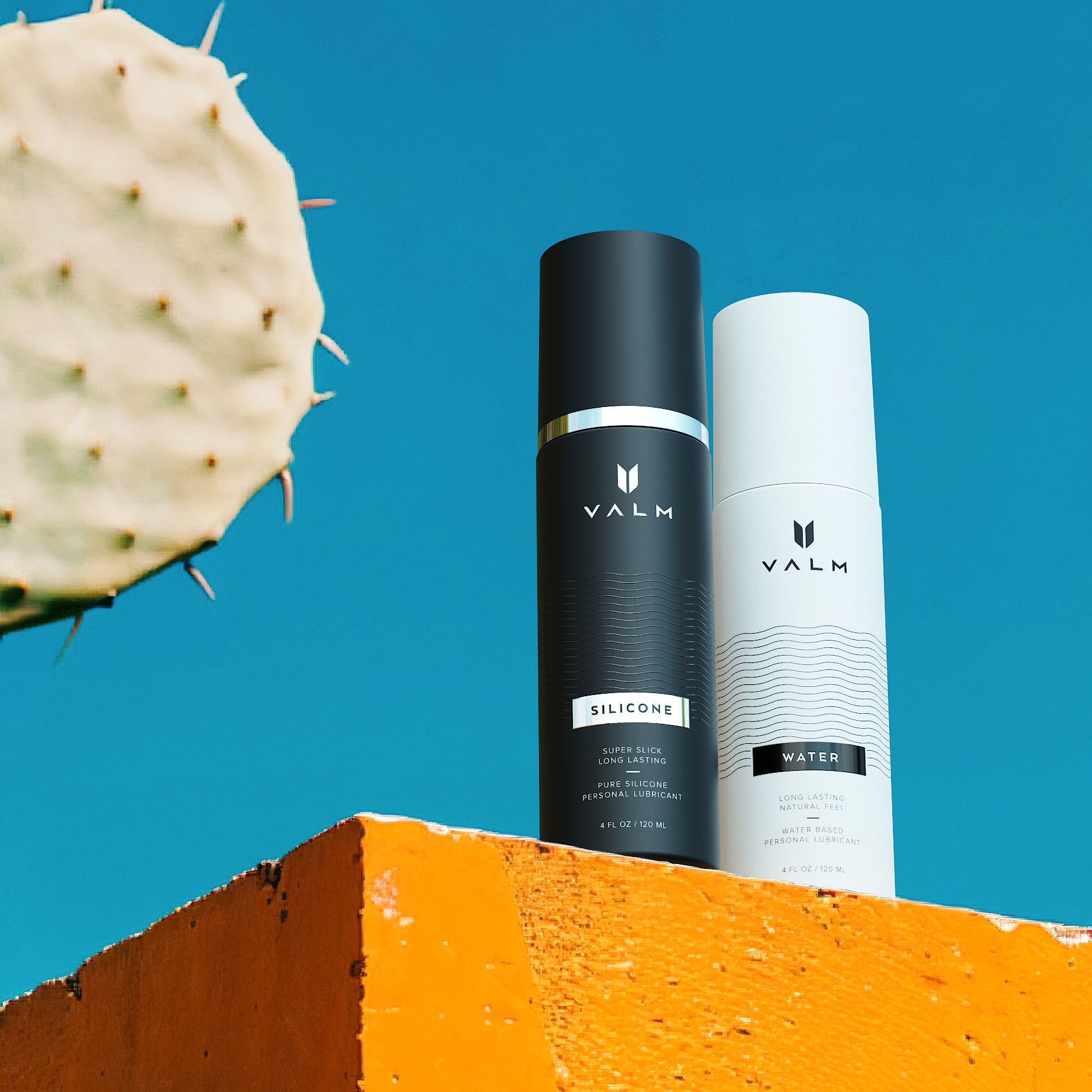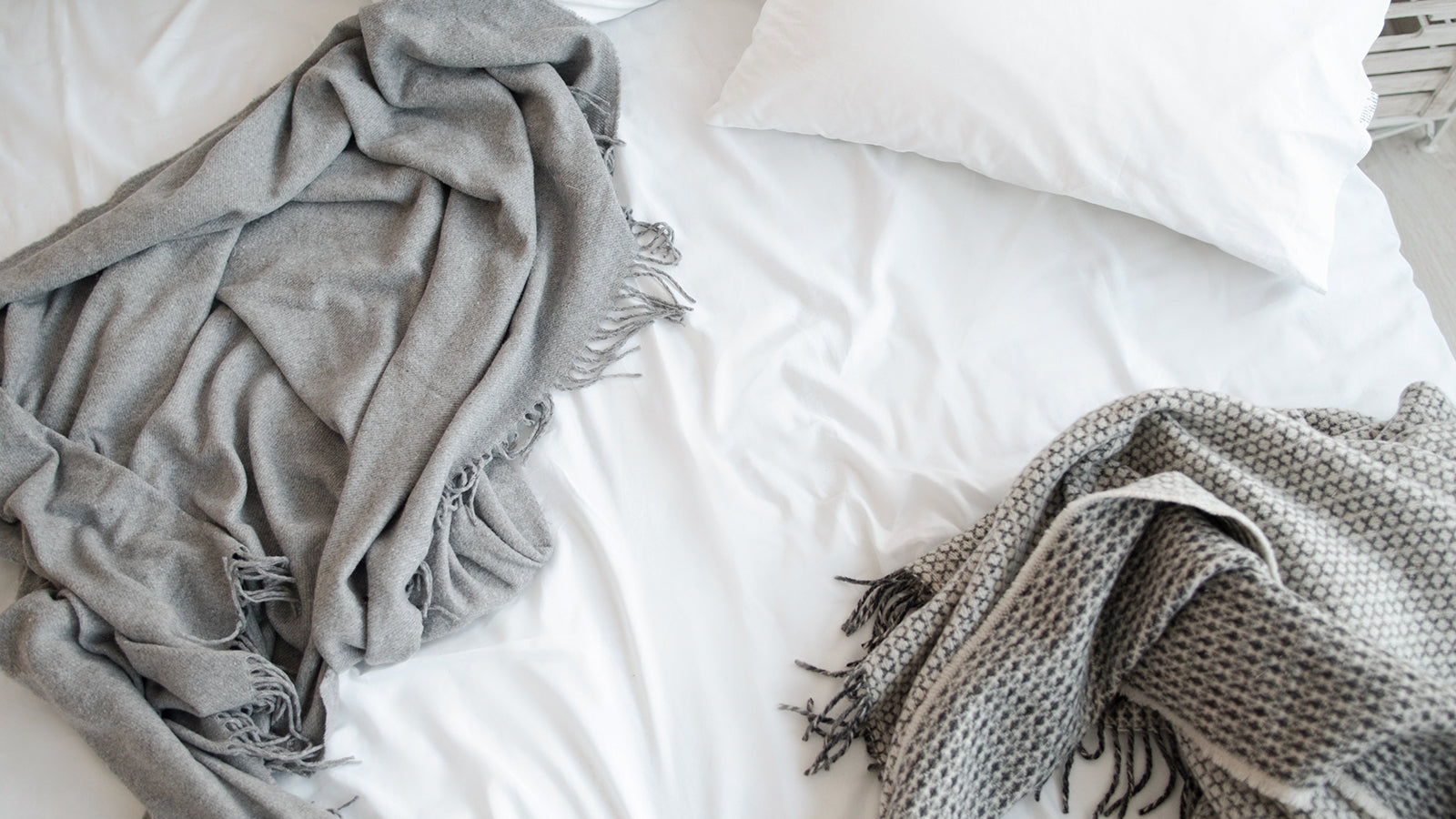We all like to think about sex, but that usually doesn’t extend to pondering the cleaning tasks required once the deed is done. And that’s okay – no one wants to conflate getting busy with stain removers and doing laundry, but that doesn’t mean a little clean-up isn’t required after a good time. From sheets stained with lube to excess bodily fluids, hygiene is a must after enjoying yourself. This is what you need to know about keeping it clean after doing the nasty.
Cleaning Up After Sex
Once the fun part draws to an end, hitting the sack for a little shut-eye might be tempting, but it’s important to address the mess. Most sexual encounters result in bodily fluids or lube left behind on sheets, clothing, and one another, and all of this needs to be remedied sooner or later. When you want to keep your sheets clean and free of bacteria or avoid embarrassing and permanent semen stains on your favorite dress, the right cleaning practices are absolutely key. From water-based lube to the secretions left behind from a little lovin’, there’s actually a lot to know about best practices when it comes to cleaning.
Let’s Talk About Lube Stains
Around 20% to 25% of couples report using lube on a regular basis during love-making. It’s popular to increase sensation, ease the penetration process, and improve the use of toys. While it’s certainly successful – hence why so many couples embrace it – there’s no denying that it’s a little messy. It’s hard to use lube without getting it on your sheets, your clothing, or yourself, leaving a lot of unanswered questions on how to remove lube stains. Will lube stain sheets? Will lube stain clothing? Will lube stain me?
Lube comes in two primary forms: water based and silicone based. Which one you prefer to use is a personal choice based on preferences and the use of things like toys, but it’s important to know which one you’re using as cleaning can vary. In addition, lube rarely gets on your sheets alone: the spots that remain after sex are usually an amalgamation of lube and various bodily fluids, which means that extra attention needs to be paid to the cleaning methodology you choose.
Does water based lube stain?
Water based lube is a very common choice for lube loving couples. It’s cheap, safe, and easy to use. And, since it’s water-based, it’s far less likely to leave a permanent stain. Water-based lube is extremely easy to remove using standard laundry procedures. Toss your sheets or clothes in the wash like you normally would and prepare for a life of stain-free textiles.
However, since lube is often mixed with bodily fluids, tossing in a stain-lifting substance, like OxiClean or Zout, can up the possibility of eliminating stains in one go. If stains are large or mixed with significant fluids, you may want to consider a stain pretreatment before hitting up the washing machine. However, in most cases, water-based lube stains won’t be a major point of concern when washed immediately with warm water and detergent.
Does silicone lubricant stain?
Silicone based lube, while very effective in its intended purpose, is significantly harder to clean than a water based lube. Many people find the sensation of using silicone-based lube in the sack to be superior to water based products, but the consequences to your sheets and clothing can’t be overlooked. The silicone component is far more likely to stain than water alone, so learning how to get lube stains out requires a little more effort than simply tossing your sheets in the washer and calling it a day.
Silicone stains in a way similar to grease, so getting it out of sheets is usually easier said than done. Even products specifically designed to remove silicone-based stains aren’t always effective, so it’s likely that a trace will be left behind in some capacity, no matter how hard you scrub. For best results, consider using the same toy cleaners you use on your adult toys as these substances are specifically designed to remove traces of sex-related fluids and lubricants.
A product specifically tested on removing silicone lube stains, with positive results, is called Soilove. For best results pretreat the stain with Soilove and let sit for a few minutes, then machine wash with your regular detergent.
Cascade dish soap can also cut grease quite well and can be used to pretreat sheets before washing or as a soaking bath – heavily diluted, of course – for 12 to 24 hours. However, these methods aren’t guaranteed, so do your homework before addressing your laundry situation and be prepared for a little trial and error.
After a spin in hot water in the washing machine and the stain-setting power of a dryer on high, stains are all but permanent, so proper prep before laundry is absolutely essential. Do a once-over of your sheets after they come out of the washer to confirm stains are eliminated, or eliminated enough, before committing to a cycle in the dryer.
Bottom line? If you want perfectly clean and stain-free sheets, silicone lube may not be for you.

Taming Bodily Fluids
Sex is fun. It’s intimate and special and a big part of creating a lasting connection with another person. And, unfortunately, it’s also fairly messy. Fluids are a big part of sex, whether you like it or not, and it’s unlikely you’ll make it through a sack session without leaving behind some stains.
Bodily fluids come in many forms, including saliva, semen, vaginal secretions, period blood, and, for those who engage in anal play, the somewhat unsettling possibility of fecal matter. All of these substances can and will stain your sheets and clothing without take the right approach to laundry, so proceed with caution after coitus.
Cleaning Semen & Vaginal Secretions
The first thing to know about cleaning stains from sex is the true makeup of what’s sitting on your sheets. Most common fluids, like vaginal secretions and semen, contain protein, which will generally require a little extra treatment beyond standard detergent. Going ahead any kind of pretreatment for spots on your clothing or sheets, especially ones with hydrogen peroxide, can be a great way to prevent staining.
Wash sheets in the hottest water you can, provided they are cotton or a cotton-poly blend. It’s perfectly safe to wash normal sheets in the washer without worrying about damage. Silk, on the other hand, requires a little additional TLC. For silk or satin sheets, treat the stain very carefully and don’t rub the fabric too hard when spot treating. Rinse sheets in cool water to remove the stains and then hand wash them in warm water with detergent.
If possible, choose a detergent that contains enzymes to best break down protein stains. Follow the directions on your detergent carefully: too much detergent is as bad or worse than not using enough.
If you’ve stained something that can’t be tossed in the wash, like couch cushions or decorative pillows, never fear: you can treat these by hand. A spray that can properly address protein, like Clorox Urine Remover, can be sprayed on any fabric surface. Blot up as much of the staining substance as possible, spray the surface, wait a few minutes, and then blot up any remaining liquid.
Think bleach is right for semen? Think again. Bleach can actually set in semen stains, creating a permanent – and likely unwanted – reminder of your good times.
How to Clean Blood Stains?
For some people, period sex is off the table, but for others, there’s no such thing as a bad time for getting busy. Unfortunately, that means the inevitability of bloody sheets or towels, creating a nightmare of stains that should be addressed as soon as possible. Blood can also come from spotting, which is smaller in volume but still likely to leave a mark.
Blood stains extremely easily, and the longer it sits, the more likely it is to stick around for good. As soon as the post-coital high wears off, get started on the cleaning process. Bloody clothes and sheets should always be washed in cold water. Hot water can set in blood stains, rendering it virtually impossible to ever see clean fabric again. Many companies, like OxiClean, make products specifically intended to address blood and similar staining, so this is a great option for pretreating.
Simple hydrogen peroxide is also very effective against stains. Just apply it to stained areas, wait for the solution to bubble, and then use a scrub brush to release particles from the fabric. Once blood stains are reduced, rinse your fabric in cold water. If stains aren’t gone yet, continue to repeat the process until any traces are eliminated before washing normally with warm water and detergent.
If your sex gets too exciting, you may find blood in other places, too. If, after a particularly acrobatic good time, blood ends up on your walls or floors, Mr. Clean Magic Erasers can make quick work of even the most significant of stains on virtually any surface.
How to Clean Fecal Matter?
No one likes to talk about poop, but it’s a reality that must be faced head-on for those who like to step up sex with backdoor anal play. Luckily, fecal matter doesn’t stain as easily as semen and blood, so cleanup is a little easier. A good washing in the washer with hot water and half a cup of bleach is adequate to remove stains and destroy bacteria, leaving you with clean, safe sheets once more.
Be aware that if semen and fecal matter are mixed together, bleach is a no-go if you want to avoid stains. If this is the case, wash sheets at the highest possible water temperature using a strong detergent that contains enzymes.
Don’t Forget About Your Mattress
If your sexy-time stains are affecting your sheets, there’s a good chance that your mattress is involved, too. Unless you sleep on top of a plastic mattress topper like those popular with potty training toddlers – and most people do not – your mattress isn’t immune to the remnants of a raunchy night. To clean your mattress, use a dish towel dipped in an enzyme-based detergent and carefully blot stains. Start from the outer edge and work inward, continuing to blot until the stain starts to lift.
If you want to protect your mattress without the uncomfortable sensation of crunching plastic, consider a fabric mattress topper. These can be periodically removed and put in the washer, providing a way to keep clean while protecting your expensive mattress.
Sex is a part of life, and so too is post-sex cleaning. By following the proper procedures to address lube and bodily fluids, you can continue living your best, stain-free life both in and out of the sheets.




